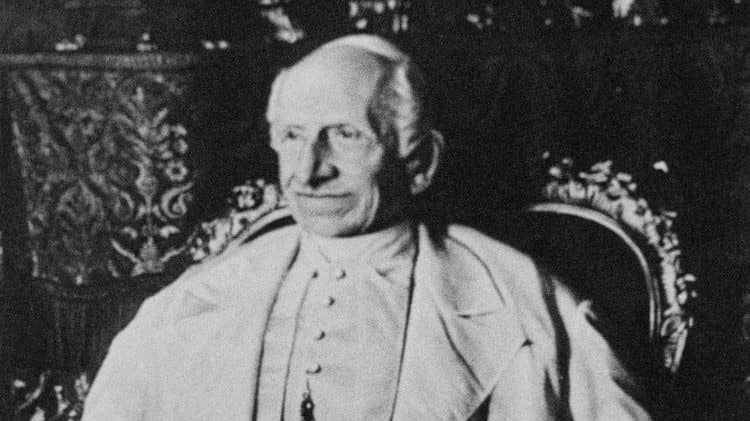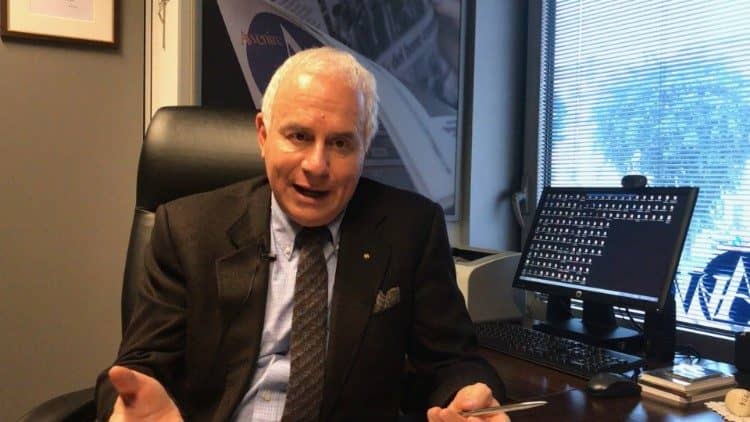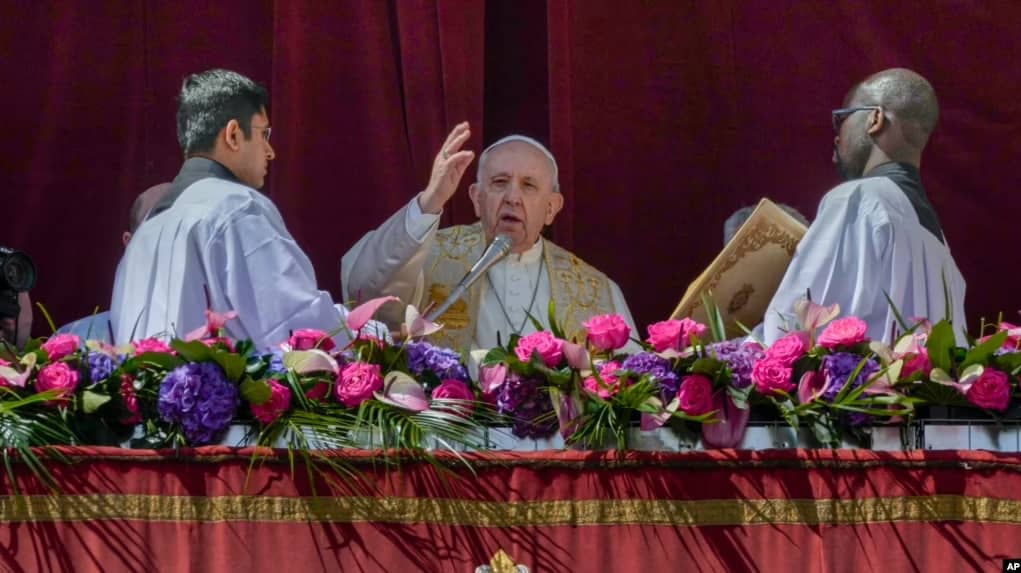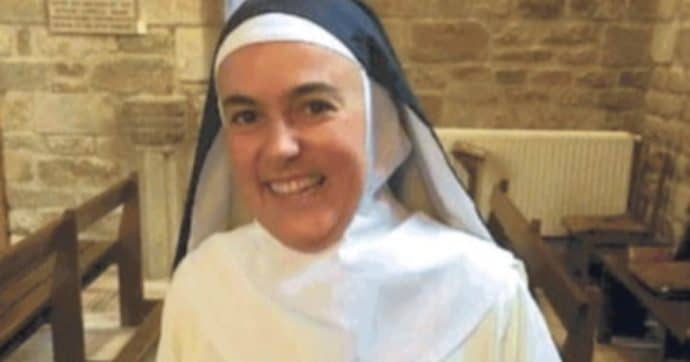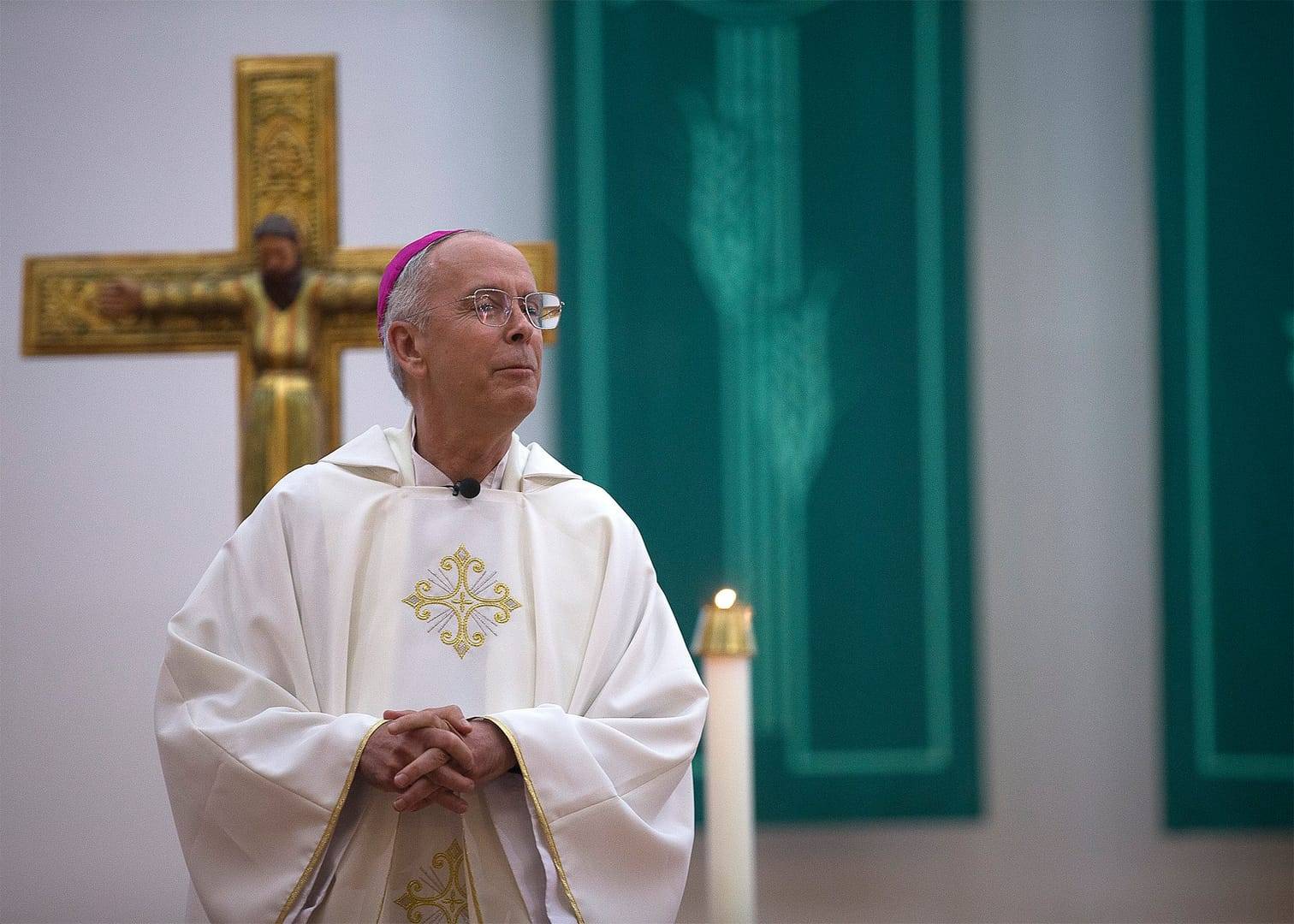ROME – Trying to get ahead of the flattening curve of the coronavirus pandemic, the Vatican announced Wednesday five working groups intended to face both immediate needs and the challenges of reconstruction once the crisis begins to ebb.
Cardinal Peter Turkson of Ghana, head of the Vatican’s Dicastery for Promoting Integral Human Development, said Wednesday the pope had asked him in March to set up a commission to coordinate the Church’s response, which will be organized into five groups:
- Charity: A group to “listen to and support local churches” in cooperation with Caritas Internationalis, the global federation of Catholic charities, as well as the office of the Papal Almoner, the Vatican Pharmacy, and the Congregation for the Evangelization of Peoples, in identifying concrete needs.
- Research: A group devoted to study of the pandemic and to reflecting on society and the aftermath in coordination with the Pontifical Academy for Life, the Pontifical Academy of Sciences and the Pontifical Academy of Social Sciences.
- Communications: A group in cooperation with the Dicastery for Communications to provide information on the other groups and to promote communication with local churches around the world.
- Foreign Relations: A group coordinated by the Section for Relations with States within the Secretariat of State to coordinate the Vatican’s outreach to other countries and to international bodies.
- Finance: A finance group intended to generate resources to support local churches, Catholic organizations and the activities of the other working groups.
Taken together, the five groups appear to represent a comprehensive effort to face the social and political challenges generated by the pandemic, in keeping with Francis’s concern that inequities which already fueled what he calls a “throw-away” culture could be exacerbated.
Of course, Pope Francis is well aware that global institutions such as the UN, the EU, the US government and others are also pondering those issues, though none from the Vatican’s unique perspective. Yet there are also challenges to which only the Vatican really is in a position to respond regarding the spiritual and pastoral fallout of the pandemic.
The potential list of such matters is long, but here’s a sampling of six.
Religious Freedom: All over the world, governments have imposed restrictions on the Church’s liturgical and sacramental life. In most cases Church authorities accepted these limits as reasonable, but some have proved contentious, and there will be a need for an “after the fact” review about lessons learned. There are also questions about whether states that assumed the power to regulate religious activity during an emergency will entirely relinquish those powers once the crisis has passed.
The Mass: For more than a month now, Catholics across a vast swath of the world have been unable to attend Sunday Mass, with some migrating to digital options and others just tuning out altogether. Some bishops and theologians have stated confidently that the enforced “Eucharistic fast” will drive a post-crisis renaissance in the Mass, as people who took it for granted will be more intentional about participation. Perhaps, but it may also be that some who got in the habit of not showing up never come back, while others decide they’re satisfied with the virtual realm. There may be a need for a new round of liturgical catechesis and evangelization, both for those who come back and those who, at least temporarily, stay away.
Confession: Demand for confession may well spike as soon as normality returns, and pastors will need guidance about how to cope with the increased numbers, including whether limited Vatican authorization in March for the so-called Third Rite of confession, meaning for groups, can be extended. Confessors may also encounter a new set of “quarantine sins,” unique to the dynamics of the lockdown. Historically, Catholic moral theology developed out of manuals for confessors written during the Middle Ages to help priests distinguish the severity of various sins, and this crisis may leave confessors needing similar guidance.
A Quarantine Vademecum: This may not be the last time a virus grips the world, and even without a global crisis, individuals and families may from time to time find themselves isolated for extended periods. A manual of good spiritual and personal practices, drawing on the experiences of the coronavirus and pitched at non-experts, could be of real use going forward.
Spirituality: As of Thursday, the global death toll from the coronavirus stood at nearly 140,000, which means the number of people touched by death, either through the loss of a family member or a friend, is incalculably larger. In many cases, the pain has been compounded by the inability to celebrate a funeral. Others are facing the strains of isolation, and they may find themselves unable to find solace in conventional prayer or devotion. Pastors will be called upon to address these issues in confession, in homilies, in home visits, and in any number of other settings, and probably would appreciate some thoughtful resources and suggestions.
Sainthood: Every great calamity generates heroes, beginning in this case with the doctors, nurses, pharmacists and other health care workers who’ve formed the front lines of response. At least some who’ve given their lives have been Catholics motivated by faith. There are also numerous priests and religious who’ve made similar sacrifices. In 2017, Pope Francis created a new category of sainthood for believers who died prematurely through an offering of their life for love of God and neighbor, even if their death doesn’t meet the traditional definition of martyrdom because there was no persecutor. There may be many such cases from the coronavirus, and the Church may want to begin collecting testimony and documentation while memories are fresh.
During the pandemic, Pope Francis emerged more or less as the world’s parish priest, offering a livestreamed Mass every day and, at key moments, prayers and blessings that provided badly needed symbols of hope.
No doubt the pope appreciates better than most that when he talks about the dopo, meaning the “after,” of this crisis, the spiritual and pastoral dimension will be as pressing as the social and political, and it will be interesting to see how he chooses to respond on those levels too.
Follow John Allen on Twitter at @JohnLAllenJr.








